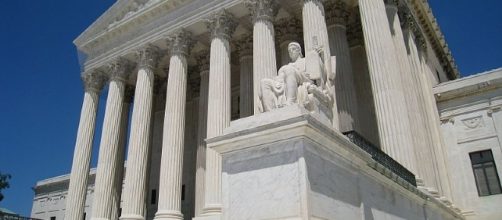The Supreme Court, on the last day of its current session, struck two blows for religious liberty. The first case involved a dispute between the Trinity Lutheran Church and the state of Missouri. The other involves a Colorado bakery called Masterpiece Cakeshop that refused to bake a cake for a same-sex couple’s wedding based on religious objections.
Public funding for churches and religious schools
The Missouri case involved the Trinity Lutheran Church located in Columbia, Missouri which operated a preschool and a playground. The church applied for a state grant in 2012 to renovate the playground using rubber from discarded tires to make the area safer for children.
The state, citing a law that prohibited aid to churches and religious institutions, turned down the application.
Trinity Lutheran went to court claiming that its constitutional rights were being violated on the basis of it being a religious establishment. The Supreme Court agreed in a 7 to 2 ruling with an opinion written by Chief Justice John Roberts that stated, in part, that, “But the exclusion of Trinity Lutheran from a public benefit for which it is otherwise qualified, solely because it is a church, is odious to our Constitution all the same, and cannot stand.”
The decision has implications beyond the narrow matter of a few scraped knees. The ruling will make it easier to allow school vouchers to be provided to parochial and other religious schools and not prohibited based on the concept of a separation of church and state.
Religious conscience vs. the right to same-sex marriage
The court also agreed to hear a case involving Masterpiece Cakeshop that ran afoul of Colorado’s anti-discrimination law that includes gay people as a protected class. In 2012, when same-sex marriage was still illegal in Colorado, a gay couple flew to Massachusetts to hold the ceremony but then conducted a reception in Colorado. Jack Phillips, the owner of the bakery, declined to bake and decorate a cake based on his religious objections to same-sex marriage. The gay couple filed a complaint under Colorado’s anti-discrimination laws.
The matter is similar to ones that have beset a number of bakeries, caterers, and florists across the United States that pitted the right to same-sex marriage, which the court has already affirmed, against the right to religious conscience.
Should a businessperson be forced to provide a good or service that violates his or her religious beliefs? The court is going to have to sort that matter out.
While the Supreme Court has agreed to hear the matter, by no means is it certain that it will rule in favor of the bakery. Only four justices are necessary to provide a cert, an action that transfers a legal matter from a state court system to the Supreme Court. Arguments are likely to be heard after the new session begins in the fall.


